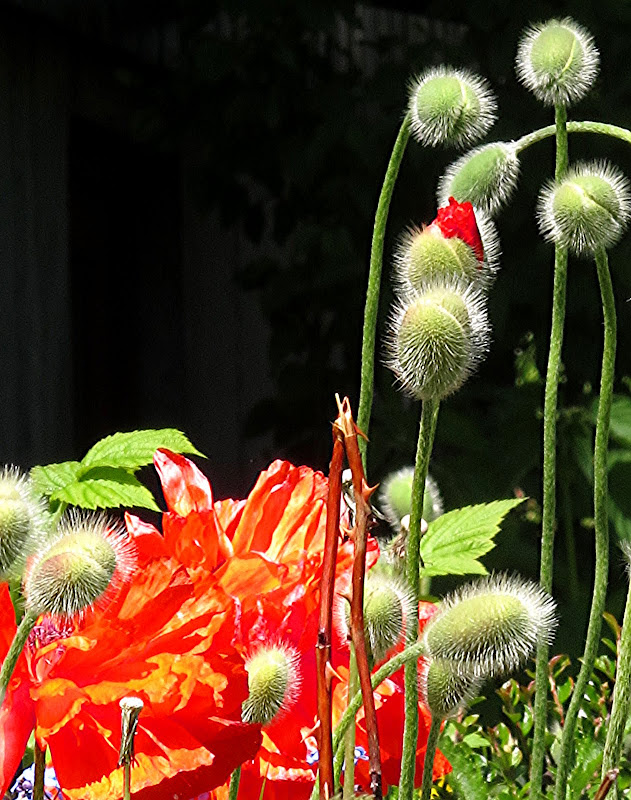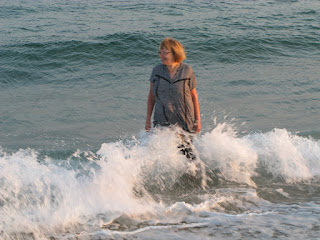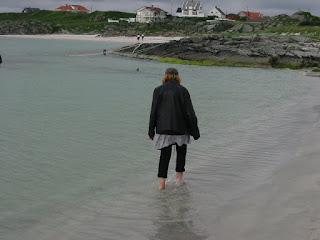 Fall blues is creeping into dark corners of my heart. When the birches outside my eastern library window are naked and brown and yellow leaves are dancing slow fox all over the garden in the autumn winds, then I know it's time to search comfort among my books and in the music.
Fall blues is creeping into dark corners of my heart. When the birches outside my eastern library window are naked and brown and yellow leaves are dancing slow fox all over the garden in the autumn winds, then I know it's time to search comfort among my books and in the music.I start reading from "A year in my Garden" by Karel Capek, and let the Moody Blues fill my ears with The Dream.
I quote my mother, who keeps assuring me, "We will get by this time too,---I think."
The Dream ( Graeme Edge )
The browns, reds and golds of autumn lie in the gutter, dead.
Remember then, that summer birds with wings of fire flaying
Came to witness springs new hope, born of leaves decaying.
Just as new life will come from death, love will come at leisure.
Love of love, love of life and giving without measure
Gives in return a wondrous yearn of a promise almost seen.
Live hand-in-hand and
together we'll stand on the threshold of a dream.






































